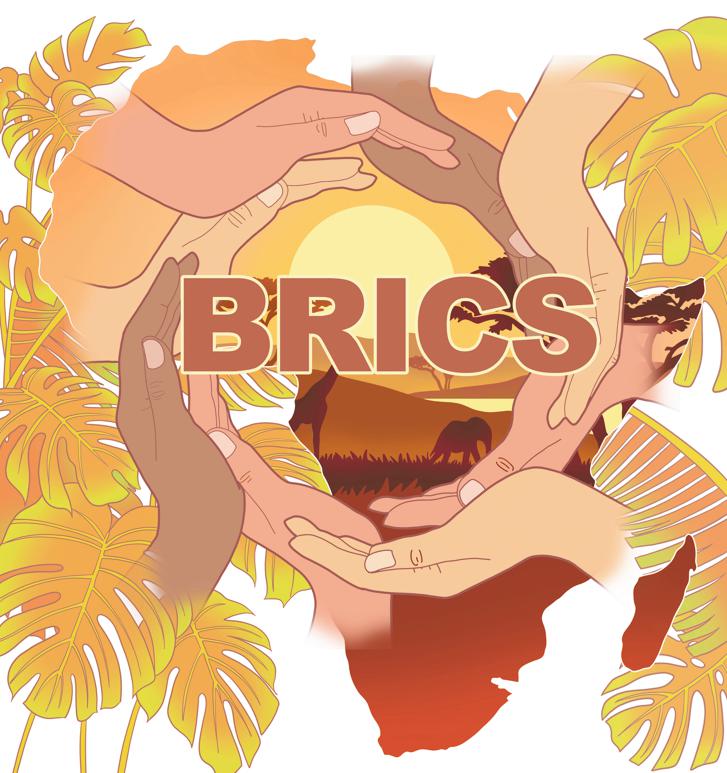China devoted to South-South cooperation

JIN DING/CHINA DAILY
Across the world, an increasing number of people recognize that the BRICS countries can represent the Global South and articulate their views on the international stage. They also acknowledge that China's development experience is exemplary and instructive for other nations in the Global South.
In 1978, representatives of 138 states adopted by consensus a "Plan of Action for Promoting and Implementing Technical Cooperation among Developing Countries" at the United Nations Conference on Technical Cooperation among Developing Countries in Buenos Aires, giving it the name Buenos Aires Plan of Action and urging all governments and elements of the UN system to implement its recommendations.
From its origin, the South-South cooperation agenda has been different from the traditional North-South cooperation agenda, because its goal is to leave no one behind and strengthen the bond among developing countries. However, South-South cooperation evolved in the context of the Cold War till the early 1990s.
The Latin American debt crisis in the 1980s, the Asian financial crisis in 1997-98 and the global financial crisis in 2008 affected major global economic powers. Amid all the global financial turmoil, South-South cooperation stood out as a true apt example of cooperation.
China acknowledges and values the role of South-South cooperation. From the 1950s, China-Africa relations have been framed by the tumultuous liberation struggles in Africa, the Cold War and the African-Asian solidarity sanctified at the Bandung Conference in 1955 that brought together 29 Asian and African countries. Since then, China-Africa cooperation has grown from strength to strength.
China-Africa cooperation began in earnest when construction on the Tanzania-Zambia Railway started in 1970. In the era of economic globalization, beginning in the 1990s, China has been the pioneer of cooperation among developing countries. China held the first ministerial conference of the Forum on China-Africa Cooperation in 2000, helped establish the Shanghai Cooperation Organization in 2001, and organized the first FOCAC Summit in 2006 which resulted in China pledging to double the aid to Africa in the next three years.
The China-Africa community has welcomed the FOCAC's emphasis on people-to-people ties and educational exchanges, while reaffirming the significance of building a fairer and just world.
On South-South cooperation platforms, China and other developing countries have worked together in fields ranging from infrastructure construction and energy to science, education, culture and the environment, while making joint efforts to alleviate poverty. These projects have changed the lives and destiny of many people.
China's association with the Global South is based on two principles — mutual benefit and equity — which are deeply rooted in traditional Chinese culture.
South-South cooperation is also about developing countries sharing their successful development experiences with each other, and not blindly following in other countries' footsteps. Accordingly, while advancing Chinese modernization, Beijing refuses to stay insensitive to the changing times.
Pursuing modernization is the right of every developing country and important to strengthen South-South cooperation. But to strengthen cooperation, countries of the Global South need to assist each other. Strong South-South partnerships respond to the challenges faced by developing countries.
South-South cooperation has expanded rapidly in scale and extent thanks to open international trade, which is a result of globalization. However, globalization has changed the way we share the world with fellow humans. By adopting a global outlook, we can become more aware of our connections to people in other societies.
We are moving toward an uncertain future. In such a situation, South-South cooperation can help the world find solutions to the global challenges and reduce the uncertainties facing the world. Yet the efforts to strengthen South-South cooperation are not aimed at denying the necessity or importance of North-South cooperation, because only by working together can we build a better world.
